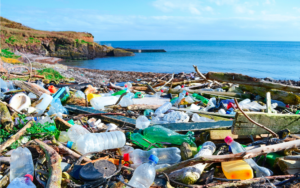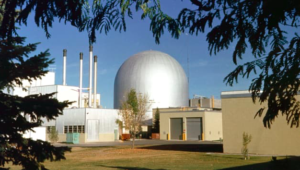July 7, 2022
Opinion
On Recent Supreme Court Decisions
 The Supreme Court’s overturning of Roe v. Wade, and now, with West Virginia v. EPA, shows how far the Right is willing to meddle in our personal lives and in our public safety to maintain power at great expense to the people. This recent, so-called “Supreme” Court, has reversed several decisions and, when convenient, without fanfare, does away with the doctrine of stare decisis that has for a long time provided consistency to court decisions. It seems powerful Republicans live in a world that is hardly affected by a woman’s need of an immediate abortion, or the survival and cost of clean up after another environmental disaster.
The Supreme Court’s overturning of Roe v. Wade, and now, with West Virginia v. EPA, shows how far the Right is willing to meddle in our personal lives and in our public safety to maintain power at great expense to the people. This recent, so-called “Supreme” Court, has reversed several decisions and, when convenient, without fanfare, does away with the doctrine of stare decisis that has for a long time provided consistency to court decisions. It seems powerful Republicans live in a world that is hardly affected by a woman’s need of an immediate abortion, or the survival and cost of clean up after another environmental disaster.
In the case of West Virginia v. U.S. Environmental Protection Agency, the court certainly shows its disregard for Biden’s “whole government” approach to climate change. It relegates decisions of such magnitude to a Congress that is ineffectual and sold out to oil companies and other big industry interests, and, in this case, especially to coal companies. One can infer the partisan politics at play here, which should make us all sad and mad. As Ezra Klein states in his June 30, NY Times article, our democracy is now in an “age of power” and the hasty, thoughtless appointments of the three recent conservative justices (Kavanaugh, Gorsuch, and Comey Bryant) was a major part of that power grab.
These two Supreme Court decisions are contemptuous, short-sighted expressions for denying any kind of coming together as a caring nation when it comes to individual humanity and a looming national emergency made worse by a prevailing Stone Age mentality. As Michael Regan, EPA Administrator, intimated in his response to the WV v. EPA decision, we can still do a lot to mitigate climate change, it just makes the job a bit more difficult. Our Supreme Court has revealed the power shift to a Right Wing philosophy, now under Justice Alito, and no longer has the legal mystique that we respected for so many years in the past. A truly sad state of affairs.
Recycling
Fixing Our Recycling System (From Inside Climate News, Nov. 24, 2021)
It’s no secret that plastics recycling is off track and only about 9% is being recycled nationwide. Since China halted taking our plastic waste in 2017, the industry has been shaken and things have gone from bad to worse. The one plastic product we know that is still recycled is the container marked “HDPE-2” (high density polyethylene). There are some local market variations, but “PET-1” (polyethylene terephthalate) is uncertain and much of it is going into landfills. Most of the other stamped containers of various shapes and colors are not recyclable.
recycled nationwide. Since China halted taking our plastic waste in 2017, the industry has been shaken and things have gone from bad to worse. The one plastic product we know that is still recycled is the container marked “HDPE-2” (high density polyethylene). There are some local market variations, but “PET-1” (polyethylene terephthalate) is uncertain and much of it is going into landfills. Most of the other stamped containers of various shapes and colors are not recyclable.
Plastic bags are common along our roads, streets, driveways, waterways, ditches, etc., not to mention in the stomachs of whales, turtles, birds, shellfish, and in so many other species. Humans are ingesting thousands of plastic particles daily and babies now have plastic particles in their bodies. If that weren’t enough, the International Environmental Law Center published its report on plastics in May. The report found that taking the lifecycle of plastics into consideration, we’ll never meet our climate goals if the industry is allowed to continue and expand as it is planning to do. The study shows that by taking the extraction of natural gas through the production process of plastics, including disposal, The whole process produces fossil fuel emissions equivalent to 189 500-megawatt coal-fired plants (for the year 2019) – and that is increasing every year.
With that, President Biden’s Bipartisan Infrastructure Law (BIL) has funding dedicated to the recycling industry. The $1.2 trillion BIL has $350 million earmarked for recycling and for managing plastic waste. The House held a hearing on Thursday, June 30, for the purpose of sorting out what to do about recycling, especially plastics. There are three major bills taken into consideration during the hearing that could be answers and also add controversy to this situation:
-
HR 8059, (Joe Neguse, D-CO) the Recycling and Composting Accountability Act – not very complicated and is meant to improve our circular economy by bolstering recycling and composting.
- HR 8183, the Recycling Infrastructure and Accessibility Act – would establish a grant program to improve recycling accessibility by improving data collection to establish a better understanding of the issues and how to set a national composting and recycling standard.
-
HR 2238, (Alan Lowenthal, D-CA) the Break Free from Plastic Pollution Act – which is more controversial than HR 8059 & HR 8183. A rough list of its requirements include:
-
It purports to make manufacturers fiscally responsible for collecting and managing such items as packaging, beverage containers, other single-use products, and food service products.
-
The phasing out of certain plastic items like utensils and single-use plastic bags with a tax on other items that make them returnable.
-
Creates a temporary moratorium on new or extended permits on certain plastic manufacturers to allow for addressing the pollution issue.
-
The EPA would be responsible for publishing clear labeling guidelines on recyclable, compostable, or reusable items.
-
Establishes limits on the export of plastic waste to other countries.
This is the task of the House Energy and Commerce Subcommittee on Environmental and Climate Change, under Paul Tonko (D-NY). (See the C-SPAN recording of the hearing.) Stay tuned, this is a continuing effort with the Biden Administration.
-
Energy
Taking a New Look at Nuclear Energy
 A fascinating story has emerged lately that has the promise of converting spent nuclear reactor cores into energy that could produce enough electric power for large sectors of the population. New interest is bringing this old technology back for another look. According to a CNBC story on June 2, 2022, fast neutron reactors could be made to operate off of the nuclear waste created by our current nuclear reactors and provide substantial power to the U.S. for the next 100 years. It would, in effect, recycle our high level nuclear waste into energy! This sounds too simple — after all, this is nuclear science. The thought that this could be the answer to our nuclear waste problem, while fulfilling energy needs at the same time, seems like a fantasy come true!
A fascinating story has emerged lately that has the promise of converting spent nuclear reactor cores into energy that could produce enough electric power for large sectors of the population. New interest is bringing this old technology back for another look. According to a CNBC story on June 2, 2022, fast neutron reactors could be made to operate off of the nuclear waste created by our current nuclear reactors and provide substantial power to the U.S. for the next 100 years. It would, in effect, recycle our high level nuclear waste into energy! This sounds too simple — after all, this is nuclear science. The thought that this could be the answer to our nuclear waste problem, while fulfilling energy needs at the same time, seems like a fantasy come true!
These fast nuclear reactor systems (FNRs) have been known, at least, since the 1950s, but the technology hasn’t caught on in the U.S., such as the conventional light water reactors (LWRs) that we are familiar with today. Russia is already using FNRs in a commercialized way. In fact, it’s the technology used in their nuclear submarines, since these reactors can fit into smaller spaces than our commercial reactors. Other countries such as France and Switzerland have also developed reactors using this type of system. There are a number of companies in the U.S. that are working toward developing this technology.
Our existing commercial nuclear energy electric facilities in the U.S., light-water reactors that use Uranium-235 in a nucleus-splitting (fission) reaction, leave thousands of tons of waste product that can be recycled in the FNRs as fuel. The spent fuel in the LWRs leaves sufficient amounts of Uranium-238 that the FNRs can use to produce Plutonium-239, which it uses as fuel. The science is more complicated than this, but here’s a link to the nuclear science in a fairly understandable manner for NON-nuclear scientists.
Sources of Bay Area Activities and Events
Friends of the Earth – located at the David Brower Center, Berkeley.
350BayArea – Includes other 350.org branches in the Bay Area.
Planet Drum – San Francisco bio-region awareness center.
Ecology Center – Berkeley sustainability center.
David Brower Center – The environmental center in Berkeley.
Sunflower Alliance – Bay Area umbrella organization for activism.
Sierra Club San Francisco Bay – Bay Area website.

The End